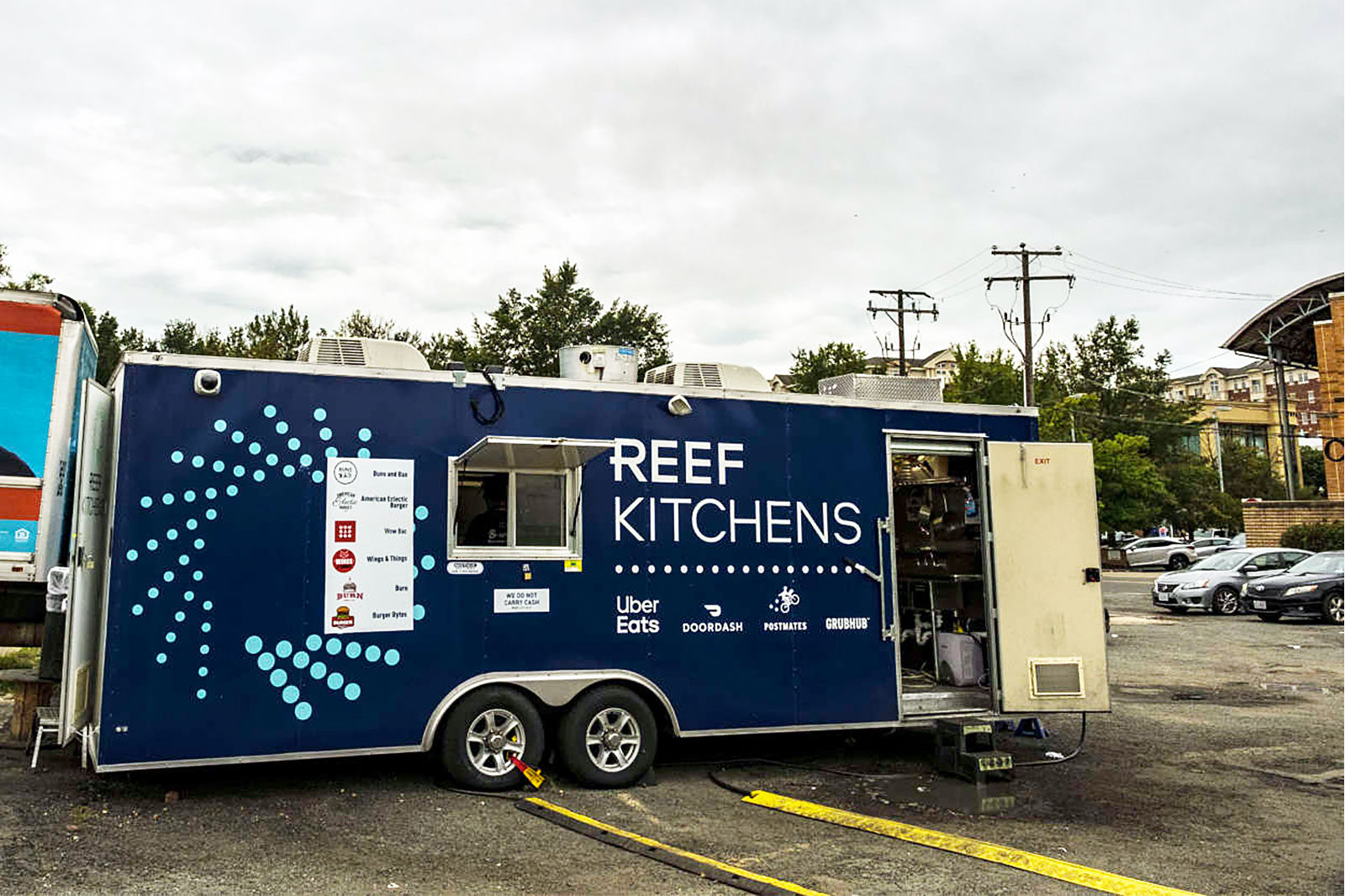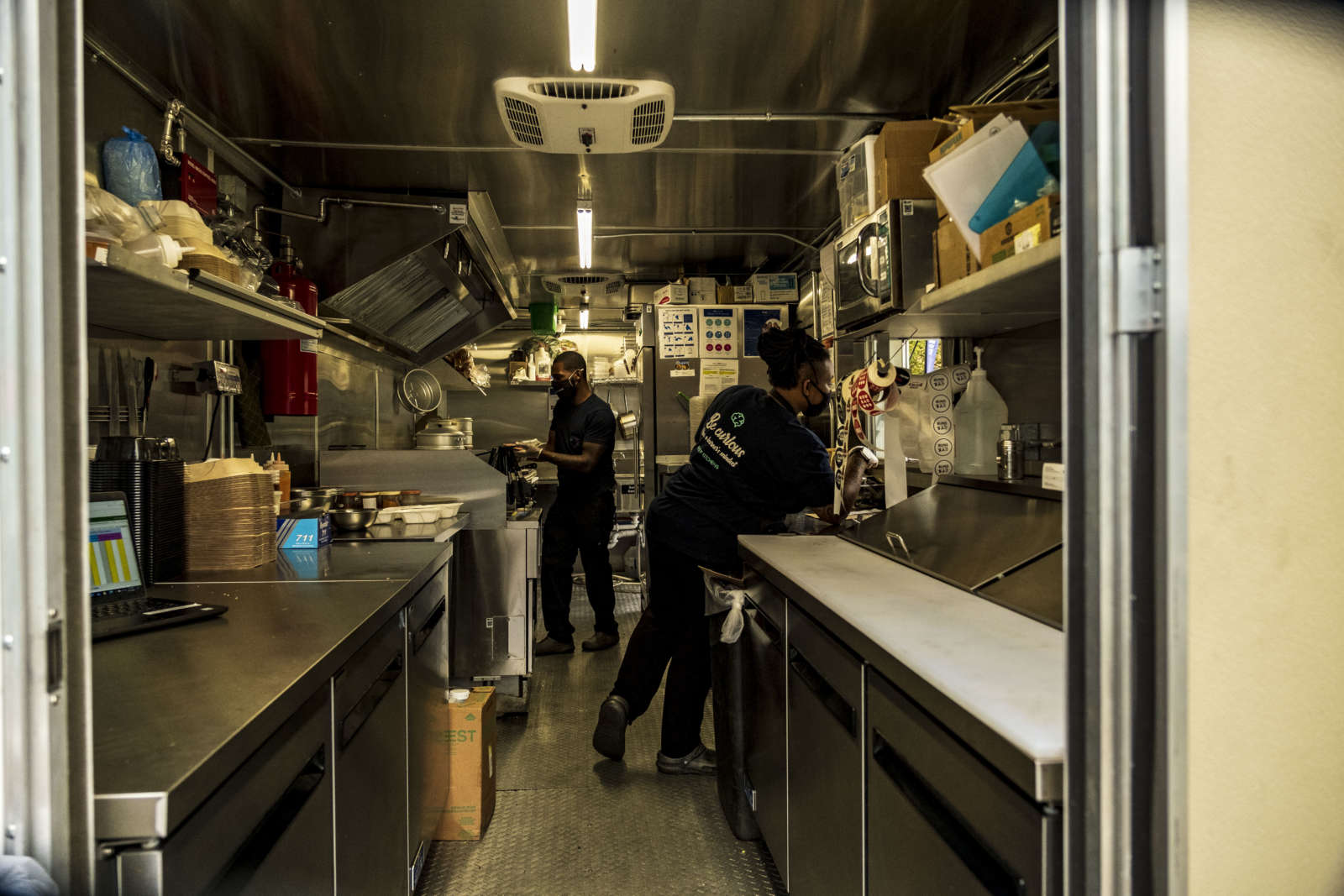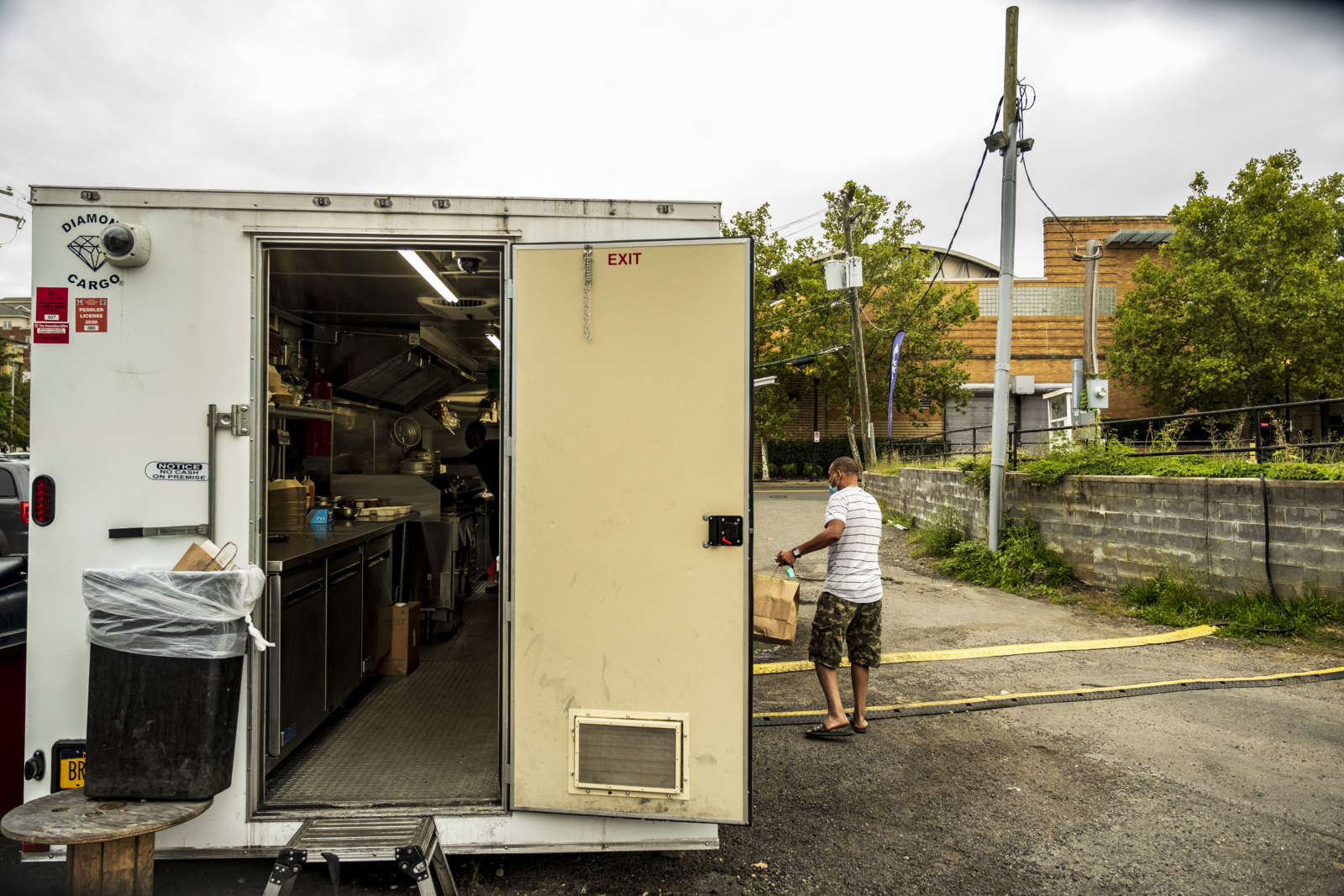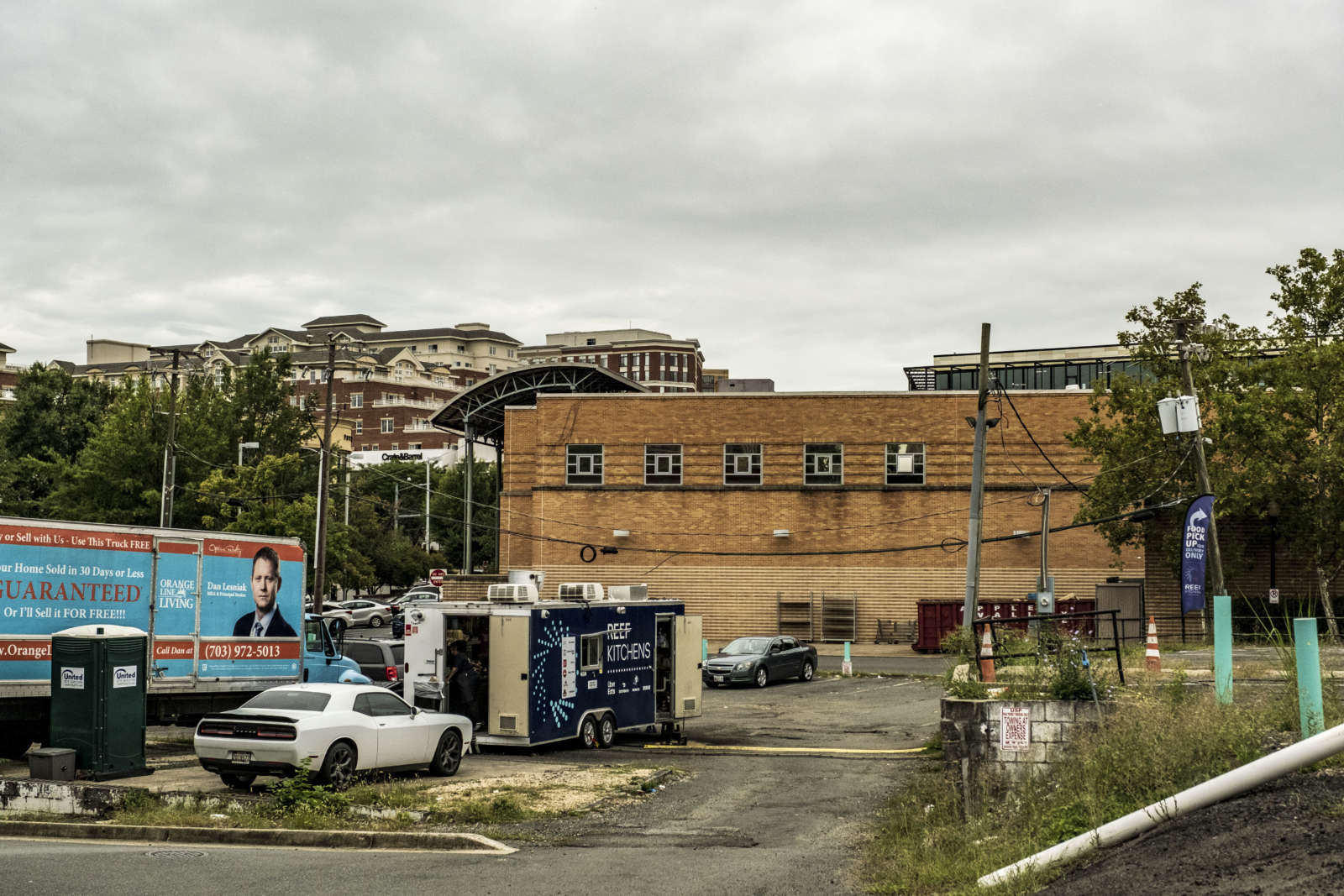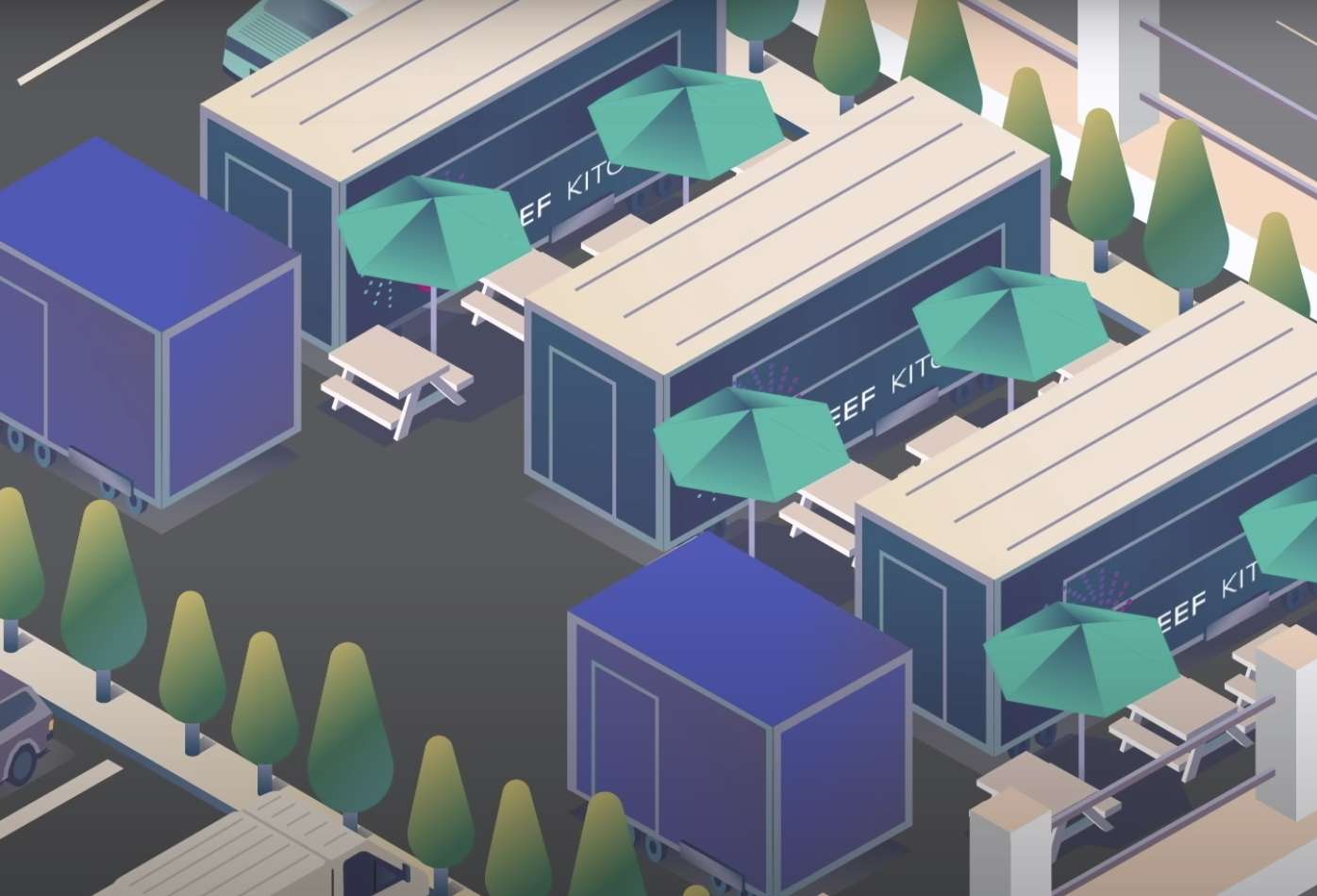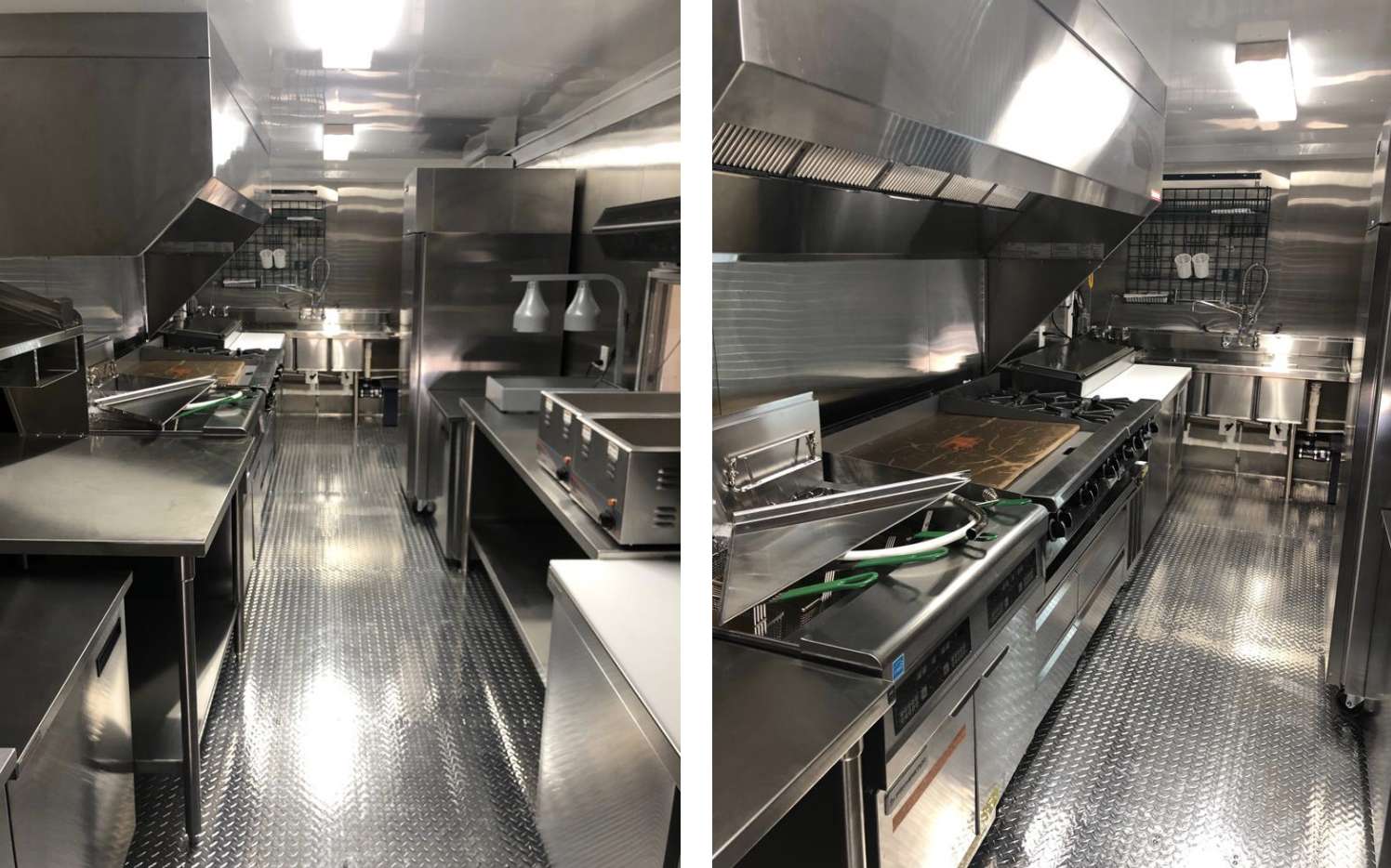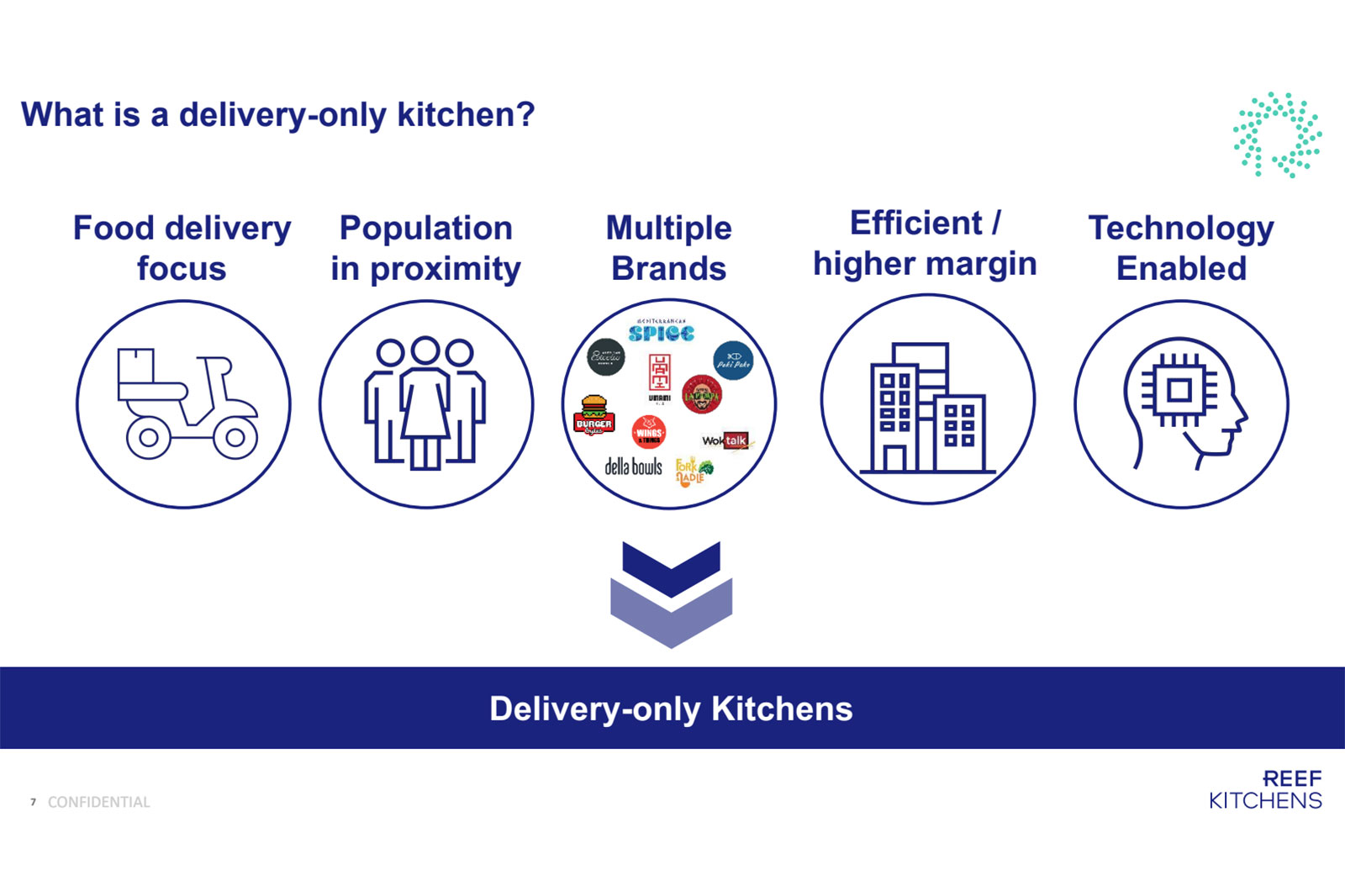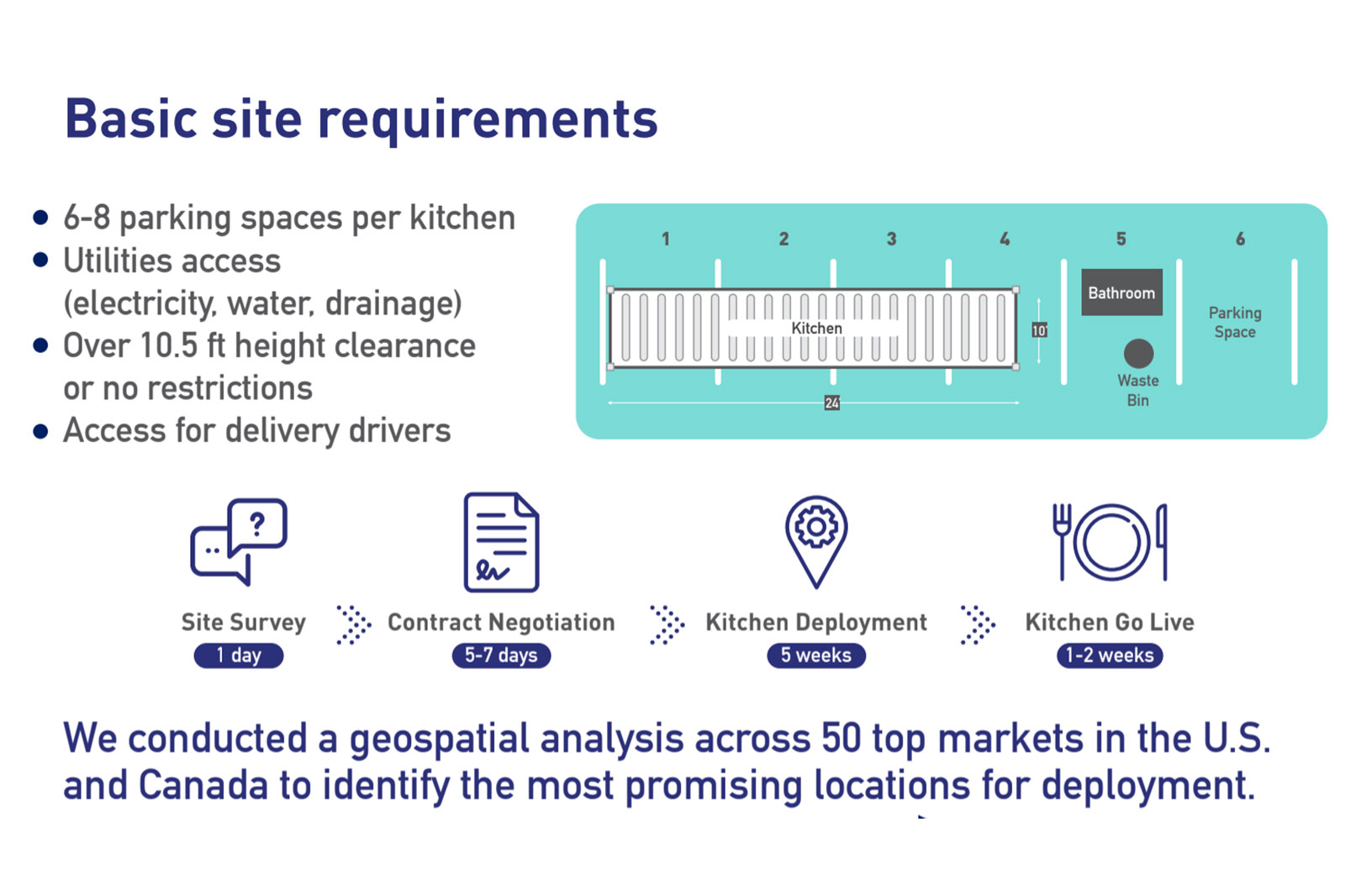You may have noticed it while going by: a seemingly random blue trailer in the middle of a decaying parking lot between the Clarendon Whole Foods and the PNC Bank.
What you might not have realized at the time is that your next meal might be coming from there.
The trailer belongs to REEF Kitchens, which is part of a company focused on turning thousands of underutilized, urban parking lots around the country into food and logistics hubs. It serves as a “ghost kitchen,” producing meals for a number of virtual “restaurants” available on food delivery platforms like Uber Eats, Doordash, Postmates and Grubhub.
A full kitchen crew works out of the trailer, which is positioned to be close to a large, dense population and convenient for delivery drivers, who don’t need to double park or dodge dine-in customers while picking up meals.
REEF currently has only one location in Arlington, but is scouting out more here and around the D.C. area.
“Our Neighborhood Kitchen on Wilson Blvd is REEF’s first, and currently only, Neighborhood Kitchen in the Arlington area,” said a PR rep for the company, in response to inquiries from ARLnow. “REEF currently operates two parking facilities in the Arlington area and close to 80 locations in the greater DMV… I think it’s fair to say we’re growing quickly and are adding new locations all the time.”
Each kitchen cooks for 5-6 restaurant brands, serving up to 80-100 delivery orders per day and offering 20-35 minute delivery times. The trailers — along with waste bins and portable bathrooms — require 6-8 parking spaces apiece, in addition to utility connections, according to a slide deck obtained by ARLnow. The company sometimes groups multiple trailers together in the same parking lot.
REEF currently employs 10 people in Arlington, the rep said, though that is significantly fewer than would be required to run five separate bricks-and-mortar restaurants. Fewer employees, close proximity to a critical mass of potential customers, and the lack of a physical building means more sales and lower costs, something that’s hard for restaurants struggling through the pandemic to compete with — particularly given the fees collected by the delivery apps.
But REEF says it is looking to unlock opportunities for restaurants and local entrepreneurs through its model.
“REEF Neighborhood Kitchens leverage the power of proximity through the company’s network of parking lots to allow food entrepreneurs, local restaurants, and national restaurant brands to open and quickly expand their delivery businesses,” said the rep. “Neighborhood Kitchens help to reduce the barriers and costs associated with traditional brick and mortar restaurants either by helping to expand an existing restaurant’s delivery radius, or by allowing food entrepreneurs to get their business off the ground without the barriers to entry of the traditional restaurant industry. ”
He added that the kitchens follow stringent food handling, cleaning and COVID-19 safety protocols, and that customers “benefit from the added convenience of expanded delivery areas and quicker delivery.”
REEF, which released a video (below) that shows its holistic vision for turning parking lots into bustling neighborhood logistics hubs, says its model represents the future — a reimagined melding of technology and the physical world.
“We believe a parking lot can be more than a place to store a car,” the company said in a presentation. “A parking lot can be a hub for the community, connecting people to the businesses, services, and experiences that make a neighborhood thrive.”


